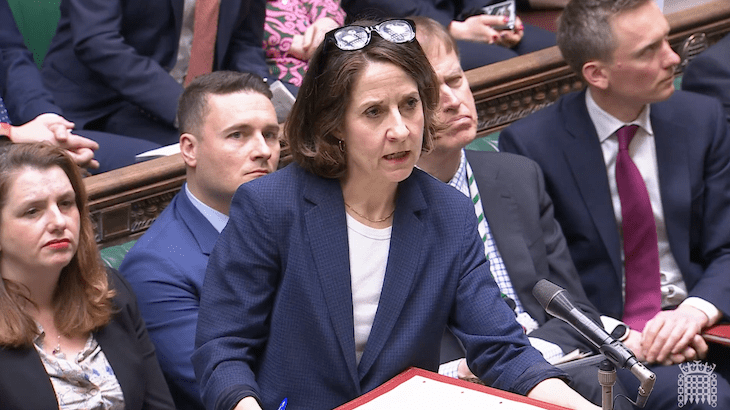The Work and Pensions Committee’s recent safeguarding report reminded me of the worst thing about working in politics: other people finding out you work in politics. There was the wedding where four men took turns giving me 30-minute monologues on why the Conservatives lost the election (as if living through it once wasn’t enough). My friends now roll their eyes and laugh when a guy at a party starts talking at me: ‘Oh god, he’s into politics’. Even I couldn’t believe my luck when last month, in a Parisian bar at 1 a.m, I was cornered by someone shouting over the music about u-shaped parliament and how select committees don’t get enough media attention (I’m still cringing). Having worked in No. 10, I had a different take, but chose instead to smile, nod, and run for the bathroom.
And yet, I couldn’t help think of that latest conversation when I heard about last week’s report from the Work and Pensions Committee. After a two-year inquiry into a series of deaths linked to departmental failings, the committee’s grand solution – laid out in 114 pages – is a new legal duty ‘to safeguard vulnerable claimants’. In other words, a new law to make sure the government tries not to kill people, or at least shields them from significant harm.
A somewhat surprising recommendation I thought, as most would quite reasonably assume that preventing harm is quite high up the list of priorities for a government department. This is in fact something former DWP minister Mims Davies tried to explain to the committee: ‘We don’t have a legal duty of care, but that doesn’t mean we don’t care’.
While the Tories argued that improved training and guidance would suffice, Secretary of State for Work and Pensions, Liz Kendall, gave the greenlight to a safeguarding duty, telling the Committee she was ‘open to the suggestion’. Those on the sharp end of her benefits cuts may be surprised to hear that.
The fact that it took two years to come up with a new law mandating that government doesn’t harm its own citizens demonstrates that select committees do in fact get more than enough attention. Perhaps the value of this report lies in what it reveals about our attitude to the state, especially the belief that every problem can and must be solved by government.
Of course DWP should improve, but as Mims Davies rightly explained to the Committee, ‘if people divulge or engage with us, they will have a much better experience than if they do not’. It takes two to tango. Some blame the media for placing any and every problem at the feet of government, but with the tax burden at a record high, we shouldn’t be surprised that expectations have gone up too.
The irony? Every time parliament imposes a new legal duty (including the common sense ones), it takes civil servants more time to complete the same amount of work. That’s how we’ve ended up with record numbers of civil servants and record levels of dysfunction. As government tries to do more than ever before, 75 per cent of people think public services are worse than five years ago.
With the No. 10 dashboard flashing red – overflowing prisons, open borders, NHS gridlock, a stagnant economy and war in Europe, there was some hope that a Labour party fresh out of 14 years in opposition could bring some energy and clarity to the nation’s problems. Instead, we have one set of Labour MPs demanding the state end lives, while another tries to make extra sure they don’t. Whatever happens, we can safely assume that our problems will not be solved in select committees after all.







Comments